Category A2J Committees
Family Justice 3.0: A Partially Automated, Settlement-Oriented, Lawyer-Facilitated Approach

JP Boyd’s Access to Justice blog has this article on “family justice 3.0”.
Online Dispute Resolution for Low Value Civil Claims

This is the first report of the ODR Advisory Group of the Civil Justice Council. The group was set up on 25th April 2014, with terms of reference that can be found in Appendix 1 of the report. In broad terms, their remit is to explore the potential of ODR (online dispute resolution) for civil disputes of value less than £25,000. The membership of the group is laid out in Appendix 2 of the report.
Click to access Online-Dispute-Resolution-Final-Web-Version1.pdf
Bilingual Accès Justice Access Centre Now Open in Halifax
Great work by our friends in Nova Scotia! What’s new in access to justice for 2015: Nova Scotia’s first bilingual access to justice centre! The Accès Justice Access centre opened recently at 1663 Brunswick Street in Halifax, as an initiative of the Association des juristes d’expression française de la Nouvelle-Écosse (AJEFNE). The centre offers services in both official languages on site and by telephone, email and online. Free consultations with a lawyer will be available by appointment.
Data Collection Completed for “Cost of Justice” Project

The Canadian Forum on Civil Justice
We have completed the data collection stages for our Cost of Justice national survey project! Here are some of our initial findings: – Over 35% of people reported stress, health, family and/or social issues as a result of experiencing legal problems. – Over a three-year period over 50% of adults reported experiencing one or more legal problems. – The most common problems were related to consumer, debt, and employment issues. Read more: http://obiter-dicta.ca/2014/10/14/data-collection-completed-for-cost-of-justice-project/
Access to Justice Co-Ordinating Committee
By: Chantel Amato
Earlier this year, several leaders in Nova Scotia’s justice and legal community launched a new collaborative effort – the Access to Justice Co-Ordinating Committee (A2JCC). Provincial Justice Minister Lena Metlege Diab and the Hon. Chief Justice Michael MacDonald are leading the initiative, acting on recommendations outlined in the Action Committee final report, Access to Civil & Family Justice: A Roadmap for Change.
The Terms of Reference for the Committee can be viewed here.
New International Report on Access to Justice
By: Chantel Amato
The International Bar Association (IBA), in collaboration with the Bingham Centre for the Rule of Law, released a report titled International Access to Justice: Barriers and Solutions on October 21st, 2014 at the IBA’s conference in Tokyo.
This study, based on findings from 26 countries, identifies many different types of barriers, such as social and cultural barriers, institutional barriers, as well as ‘intersectional’ barriers. The report notes that although efforts to improve access to justice are significant there is still much work to be done and provides some recommendations.
To read the report click here. The report is also attached as a PDF.
New Access to Justice Commission Formed in Arizona
By: Nicole Aylwin
A new State access to justice commission was formed last week in Arizona. To read about the new commission click here.
For those looking for resources on how to form and operate an A2J commission you may want to visit the American Bar Association Access to Justice Resource Centre. While the A2J Commission system is slightly different in the US than what is developing here in Canada – many of the resources are transferable.
Transforming Ideas into Action: A Special Edition of the CFCJ Newsletter
By: Nicole Aylwin
Since the release of the Action Committee’s Final Report last October, justice stakeholders across the country have taken up the challenge to find new ways to innovate, collaborate and inspire others to increase access to justice. Last week the Canadian Forum on Civil Justice published a special edition of its newsletter dedicated to profiling emerging A2J initiatives across the country.
Read the special edition here.






